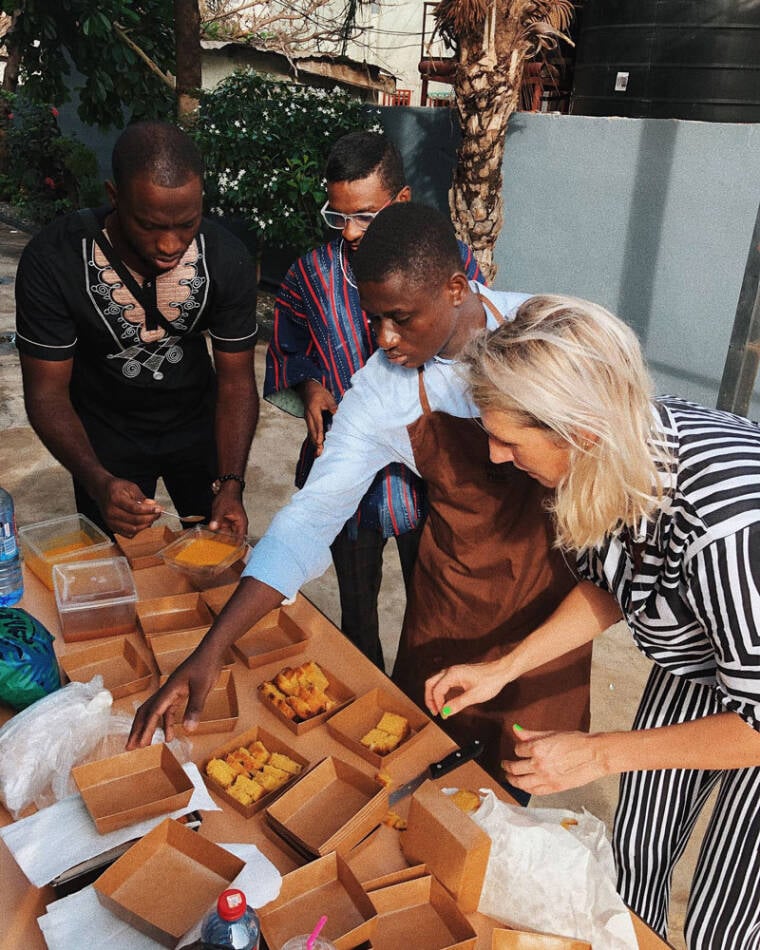Sankofa snacks
A start-up that makes chips from plantain and cassava and adds very cool, local flavors like citrus-pepper, a crop that only grows here in Ghana. By the way, they are one of the first start-ups that not only serve the Ghanaian market, but also export to America.
This young company has a skincare line made from raw products from Ghana. Their philosophy is: everything you put on your skin should be so pure that you could eat it. That means you can indeed eat these skin butters and oils.
Skin Gourmet
The name stands for tropical almond. This company makes almond milk from tropical African almond trees. Although officially these are not actually almond trees, the fruit looks and tastes like almonds. The advantage is that the trees need much less water than traditional almond trees and therefore have less impact on the climate.
talmond
Which start-ups are hot and happening in Ghana right now?
How do you see the future of the Ghana Movement and yourself in Ghana?
"I feel like although we have only just started setting up the movement here, more and more is falling into place. We will soon be opening our own test kitchen where food producers, chefs and start-ups can work together. In that kitchen we’ll train young people to become product developers. We will teach them how to add value to local products. We will also offer young chefs and start-ups a place to develop themselves. And, most importantly, we don't just want to reinvent the kitchen, we also want to celebrate what we have here and ensure that the traditional Ghanaian food culture is not lost. For the time being I have so much I would like to realize here, going back to the Netherlands will have to wait a while!”
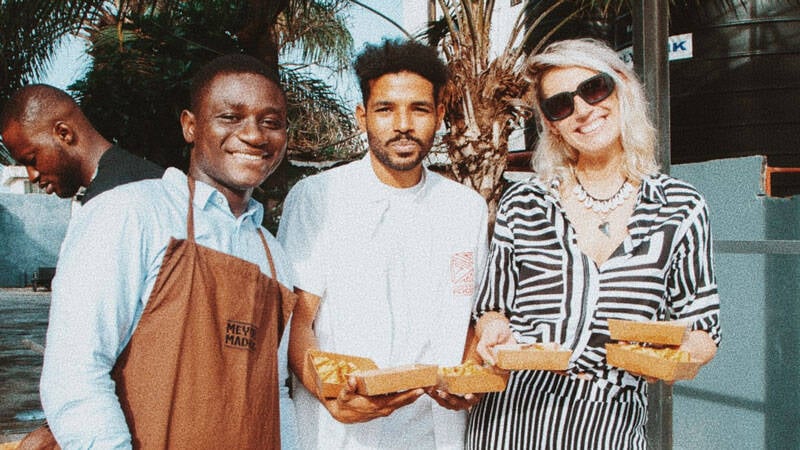
Elie Fink, Founder of Talmond Foods at the Panel Discussion on Underutilized Ingredients

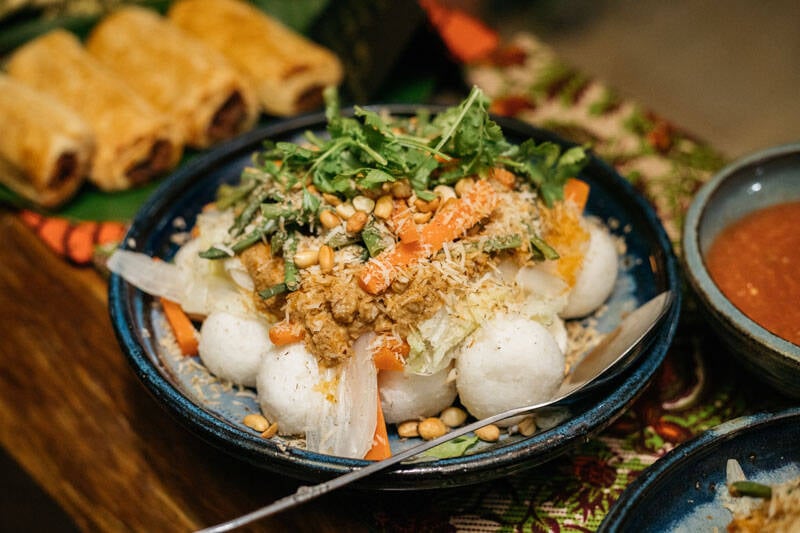
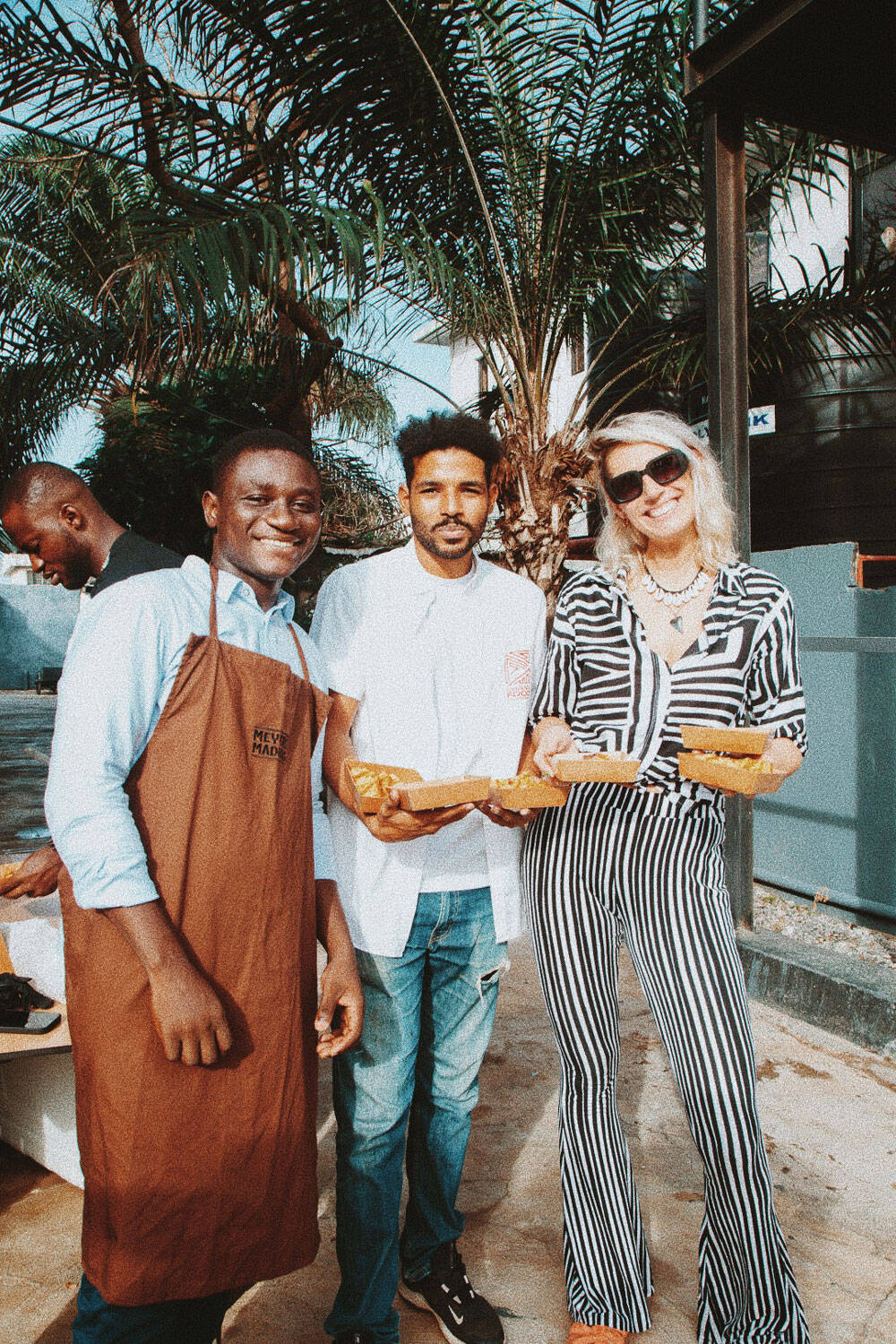
What are the current trends and developments in the Ghanaian world of food?
"There is a huge trend around cocoa – Ghana's biggest export product – even though cocoa wasn’t originally grown here. European countries brought the crop here during colonization and planted it for the sole purpose of exporting it to manufacture products. Now, there are many farmers who work in the cocoa industry, but they are being exploited so people in the Global North can eat affordable chocolate. Fortunately, a lot of farmers are starting to think about how they can add something local to cocoa production. For example by adding local spices. They are starting to appropriate the product more and thereby adding value. It’s a nice development to see."
"Another trend is the rise of nomadic pop-up dinners where guests are completely immersed in traditional nomadic culture. People are served traditional Ghanaian meals while sitting on a mat. One of the members of the Ghana Food Movement, caterer Fulani Kitchen, specializes in organizing these types of traditional dinners. They’re super popular, both with locals and tourists! The third wonderful trend is the rise of young chefs who are reinventing Ghanaian cuisine and want to celebrate and showcase the beautiful ingredients from their country."
There are no Michelin-starred restaurants in West Africa; there is hardly any top gastronomy. How is that possible?
"The reason for the lack of gastronomy is the fact that there are fewer role models. A profession as a chef is still often seen as a woman's job that barely earns any money. It is very important that there are African role models on the culinary world stage and also that more chef training programs are set up in Ghana. Training to become a chef like the way we do in the Global North, is not a thing here. There are no teachers. Chefs have to master the profession themselves. They do not have the money to do an internship at renowned restaurants in America or Europe. If nobody teaches you the trade, how can you ever become very good at it? That is why the Ghana Food Movement is trying to link talented local chefs to Michelin-starred chefs from all over the world. This way we try to implement gastronomic knowledge in Ghana."
Baobab
The fruits and leaves of this tree are edible and contain a high amount of nutrients. The fruits are about the size of a coconut, and have a silky, green-yellow skin. The flesh is mild and tastes sweet and sour and has been compared to a mix of pear, vanilla and grapefruit.
This berry is also called the Ghanaian blueberry. Yooyi contains many good nutrients. It is said in Africa that the berry, among other things, works well against the disease effects after the bite of a malaria mosquito.
Yooyi
A fermented globule made from seeds of the locust bean of the carob tree. These seeds contain an extreme umami flavor; indeed it is one of the strongest umami flavors in the world. Hence, it is widely cooked in Africa.
Dawadawa
Kontomire
These are cocoyam leaves, soft and sweet, among other things often used in soups and stews. You can also grill or fry them nicely, which gives a totally different taste.
What can the Global North learn from Ghanaian cuisine?
"Ghanaian cuisine is very rich in flavor and traditions. When chefs in Europe want to learn the chef's trade, they often take a chef's course then do an internship at a Michelin star restaurant, for example in Amsterdam, Paris or Copenhagen. Though they are of importance too, work in all of these places is based on a similar philosophy. The West African cuisine is so different that as somebody from the Global North you could learn an incredible amount. It's truly a treat to discover traditional cooking over here based on century-old traditions, with an incredible amount of ingredients that are super healthy. If you are a chef who really wants to learn new things in the kitchen, come to Ghana! There are so many wonderful ingredients here that the Global North doesn't know about (yet)." Some examples being:
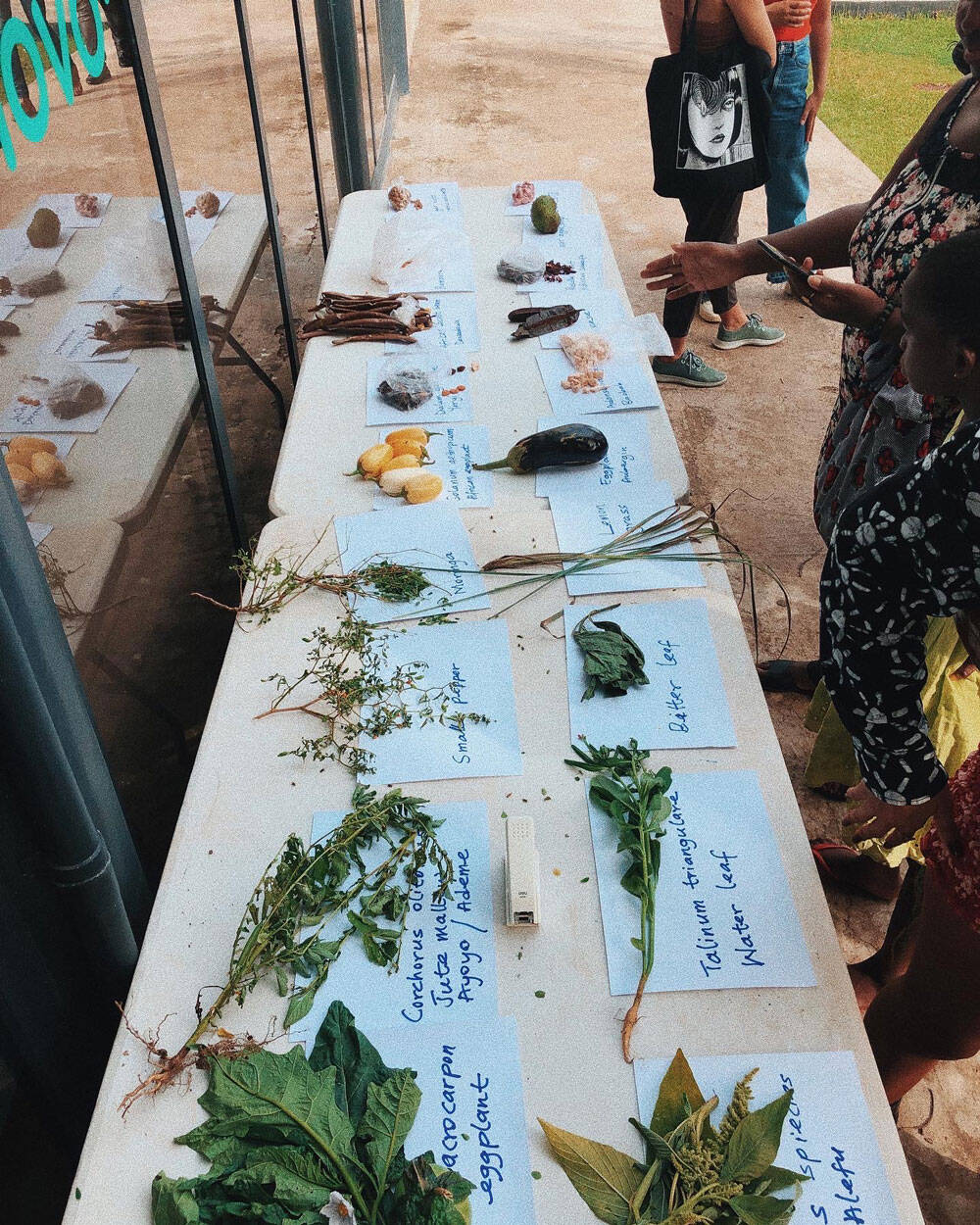
*Global North
The term 'Western world' is often used for countries in Europe and for the United States of America. The term suggests that the West is more developed than the non-West. Scholars don't think this distinction is correct, and prefer to talk about Global North and Global South. According to them, this is a more correct distinction that allows you to name the location of a country without passing judgment on it. In respect of Ghanaian culture that we describe in this article we focus on geographical locations: Global North and Global South.
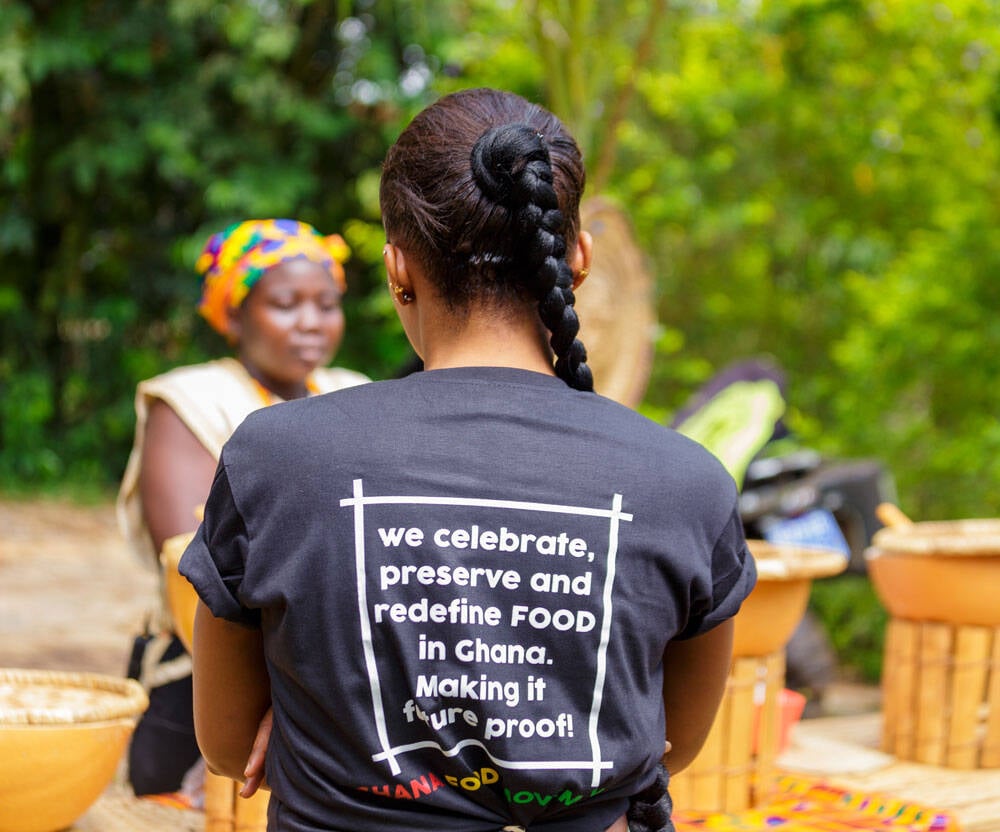
What misconceptions do people in the Global North world have about West Africa?
"The media in the Global North* often conveys that people in Africa are starving. But that’s not the case at all; there is food in abundance here. Because of this misinformation, nonprofit organizations come to Ghana, supposedly to help the population. An example is one prominent organization that wants to eliminate hunger and improve living standards of farmers in developing countries. For years, this organization has invested heavily in the production of 'safe mono products' in Ghana, like corn and soy which has dramatic consequences. There has been a total disregard for what works in this culture. Before they got to work, many farmers here worked with multiple business models and produced different types of crops to diversify their chances. But because of the organization’s highly subsidized cropping program, they started to focus on monoculture and thus on producing only one crop. Their multi-entrepreneurship approach has been totally eroded, resulting in much higher risks. So if a crop fails they lose their entire annual turnover."
"Next thing, new organizations from the Global North come to Ghana and claim that their diet is unhealthy and too one-sided, while in fact the Ghanaian diet is originally very healthy and varied; it only changed when organizations for example from Europe or the US started interfering. In the rural areas they stripped the diversity in production and in cities there was a glorification of the standard American diet, which contains high amounts of processed and pre-packaged food. Influence of the Global North has caused the diet to be much more unhealthy. This is not only true for West Africa by the way, it happens in many other African regions as well. People want to be prosperous and resemble Europe, North America or Australia, and in their eyes that includes fast food. It’s such a shame, because African cuisine has so many beautiful traditions and so many healthy, local products, and instead of choosing their own local cuisine, people prefer unhealthy, greasy food."
Ghana Food Movement
Ghana Food Movement supports initiatives that work toward a healthy food system in Ghana. The network currently consists of approximately 100 members, called movers; they include farmers, scientists, chefs, journalists, policy makers, entrepreneurs, and producers. Wouters and her team help curate food programs that eventually create jobs for young adults in hospitality and other areas of the food system. The group also contributes to the rediscovery of traditional dishes from Ghanaian cuisine.
In 2012, Lotte Wouters founded The Food Line-up in the Netherlands, a party catering company that works with local entrepreneurs who book and present food offerings at festivals and events. From the start, The Food Line-up doubled in turnover each year, and Wouters was named one of the most promising entrepreneurs in the Dutch catering industry. She was planning to expand further in the Netherlands, until her husband was offered a job in Ghana in 2018. Together with their two children, they transitioned from their home in Europe and traded it for the unknown. Wouters had never lived in West Africa before, but was immediately touched by the incredible variety of dishes, food producers, and their stories. In Europe, organizations that connect food professionals with each other are the norm, but in Ghana there was no such thing. With contagious enthusiasm for entrepreneurship and a knowledge of food and drink, she launched the Ghana Food Movement, a network for and by Ghanaian food professionals.
Maaike de Reuver Ghana Food Movement Xiao Er Kong
The Ghana Food Movement is an organization which aims to heighten awareness of Ghanaian cuisine around the world. Because although the food culture in this West African country is both beautiful and rich, many misconceptions continue to exist. We spoke with founder Lotte Wouters about the how, what, and why.
The food culture in this West African country is both beautiful and rich, and misunderstood
Ghana Food Movement puts Ghanaian food culture on the map
interview
8 min
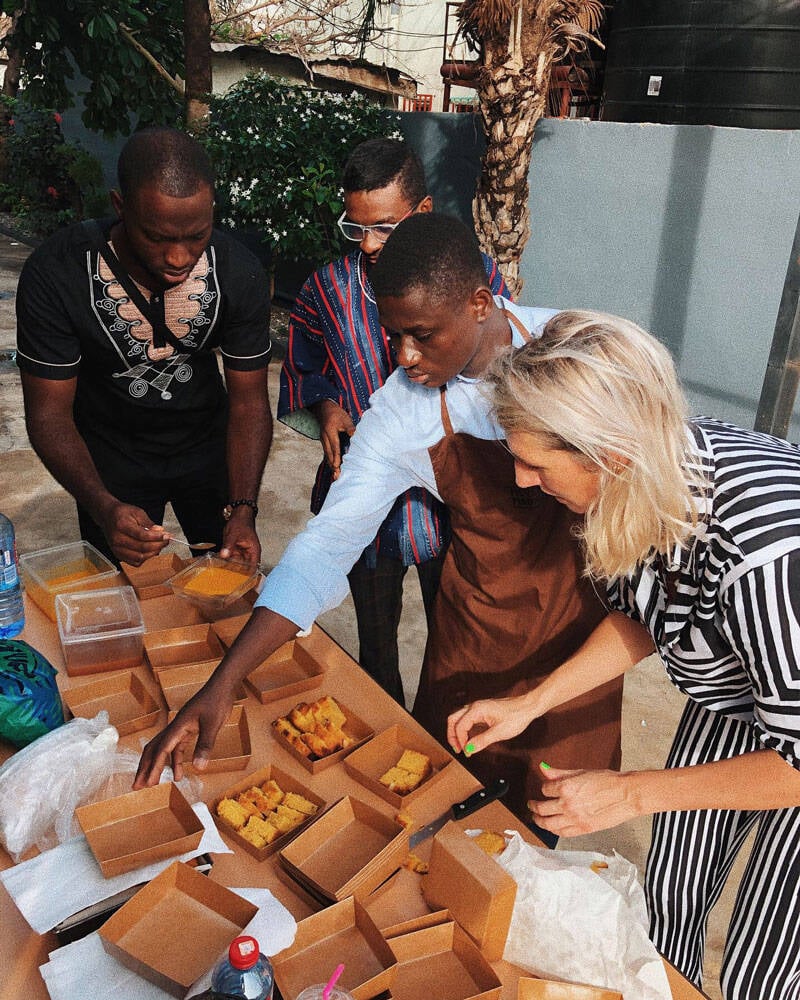






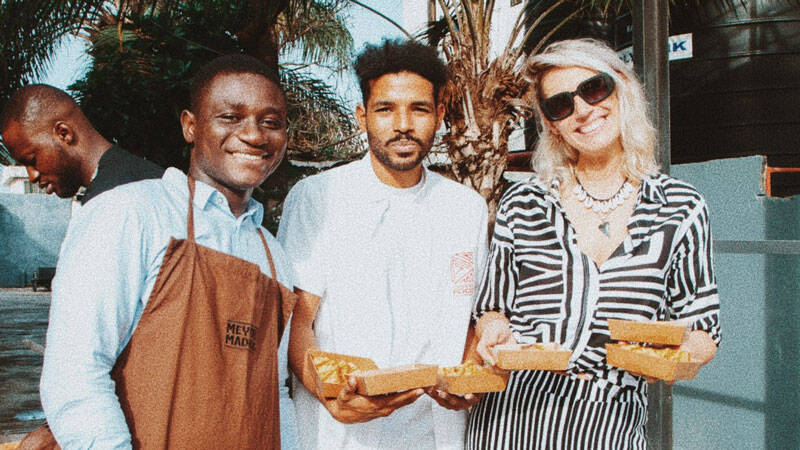
How do you see the future of the Ghana Movement and yourself in Ghana?
"I feel like although we have only just started setting up the movement here, more and more is falling into place. We will soon be opening our own test kitchen where food producers, chefs and start-ups can work together. In that kitchen we’ll train young people to become product developers. We will teach them how to add value to local products. We will also offer young chefs and start-ups a place to develop themselves. And, most importantly, we don't just want to reinvent the kitchen, we also want to celebrate what we have here and ensure that the traditional Ghanaian food culture is not lost. For the time being I have so much I would like to realize here, going back to the Netherlands will have to wait a while!”
Sankofa snacks
A start-up that makes chips from plantain and cassava and adds very cool, local flavors like citrus-pepper, a crop that only grows here in Ghana. By the way, they are one of the first start-ups that not only serve the Ghanaian market, but also export to America.
This young company has a skincare line made from raw products from Ghana. Their philosophy is: everything you put on your skin should be so pure that you could eat it. That means you can indeed eat these skin butters and oils.
Skin Gourmet
The name stands for tropical almond. This company makes almond milk from tropical African almond trees. Although officially these are not actually almond trees, the fruit looks and tastes like almonds. The advantage is that the trees need much less water than traditional almond trees and therefore have less impact on the climate.
talmond
Which start-ups are hot and happening in Ghana right now?
Elie Fink, Founder of Talmond Foods at the Panel Discussion on Underutilized Ingredients

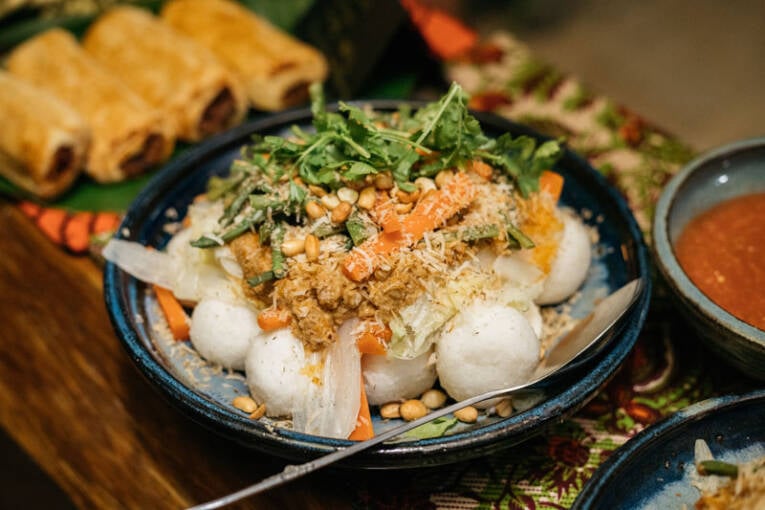
What are the current trends and developments in the Ghanaian world of food?
"There is a huge trend around cocoa – Ghana's biggest export product – even though cocoa wasn’t originally grown here. European countries brought the crop here during colonization and planted it for the sole purpose of exporting it to manufacture products. Now, there are many farmers who work in the cocoa industry, but they are being exploited so people in the Global North can eat affordable chocolate. Fortunately, a lot of farmers are starting to think about how they can add something local to cocoa production. For example by adding local spices. They are starting to appropriate the product more and thereby adding value. It’s a nice development to see."
"Another trend is the rise of nomadic pop-up dinners where guests are completely immersed in traditional nomadic culture. People are served traditional Ghanaian meals while sitting on a mat. One of the members of the Ghana Food Movement, caterer Fulani Kitchen, specializes in organizing these types of traditional dinners. They’re super popular, both with locals and tourists! The third wonderful trend is the rise of young chefs who are reinventing Ghanaian cuisine and want to celebrate and showcase the beautiful ingredients from their country."
There are no Michelin-starred restaurants in West Africa; there is hardly any top gastronomy. How is that possible?
"The reason for the lack of gastronomy is the fact that there are fewer role models. A profession as a chef is still often seen as a woman's job that barely earns any money. It is very important that there are African role models on the culinary world stage and also that more chef training programs are set up in Ghana. Training to become a chef like the way we do in the Global North, is not a thing here. There are no teachers. Chefs have to master the profession themselves. They do not have the money to do an internship at renowned restaurants in America or Europe. If nobody teaches you the trade, how can you ever become very good at it? That is why the Ghana Food Movement is trying to link talented local chefs to Michelin-starred chefs from all over the world. This way we try to implement gastronomic knowledge in Ghana."
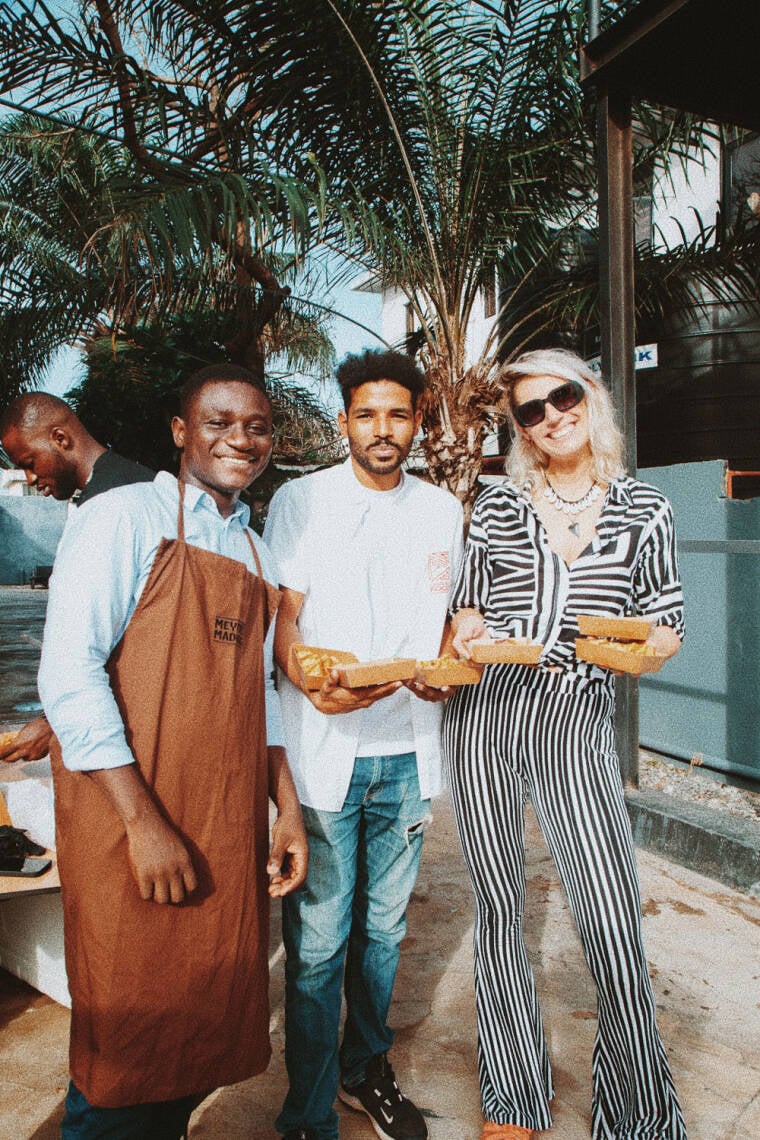
Baobab
The fruits and leaves of this tree are edible and contain a high amount of nutrients. The fruits are about the size of a coconut, and have a silky, green-yellow skin. The flesh is mild and tastes sweet and sour and has been compared to a mix of pear, vanilla and grapefruit.
This berry is also called the Ghanaian blueberry. Yooyi contains many good nutrients. It is said in Africa that the berry, among other things, works well against the disease effects after the bite of a malaria mosquito.
Yooyi
A fermented globule made from seeds of the locust bean of the carob tree. These seeds contain an extreme umami flavor; indeed it is one of the strongest umami flavors in the world. Hence, it is widely cooked in Africa.
Dawadawa
Kontomire
These are cocoyam leaves, soft and sweet, among other things often used in soups and stews. You can also grill or fry them nicely, which gives a totally different taste.
What can the Global North learn from Ghanaian cuisine?
"Ghanaian cuisine is very rich in flavor and traditions. When chefs in Europe want to learn the chef's trade, they often take a chef's course then do an internship at a Michelin star restaurant, for example in Amsterdam, Paris or Copenhagen. Though they are of importance too, work in all of these places is based on a similar philosophy. The West African cuisine is so different that as somebody from the Global North you could learn an incredible amount. It's truly a treat to discover traditional cooking over here based on century-old traditions, with an incredible amount of ingredients that are super healthy. If you are a chef who really wants to learn new things in the kitchen, come to Ghana! There are so many wonderful ingredients here that the Global North doesn't know about (yet)." Some examples being:
*Global North
The term 'Western world' is often used for countries in Europe and for the United States of America. The term suggests that the West is more developed than the non-West. Scholars don't think this distinction is correct, and prefer to talk about Global North and Global South. According to them, this is a more correct distinction that allows you to name the location of a country without passing judgment on it. In respect of Ghanaian culture that we describe in this article we focus on geographical locations: Global North and Global South.
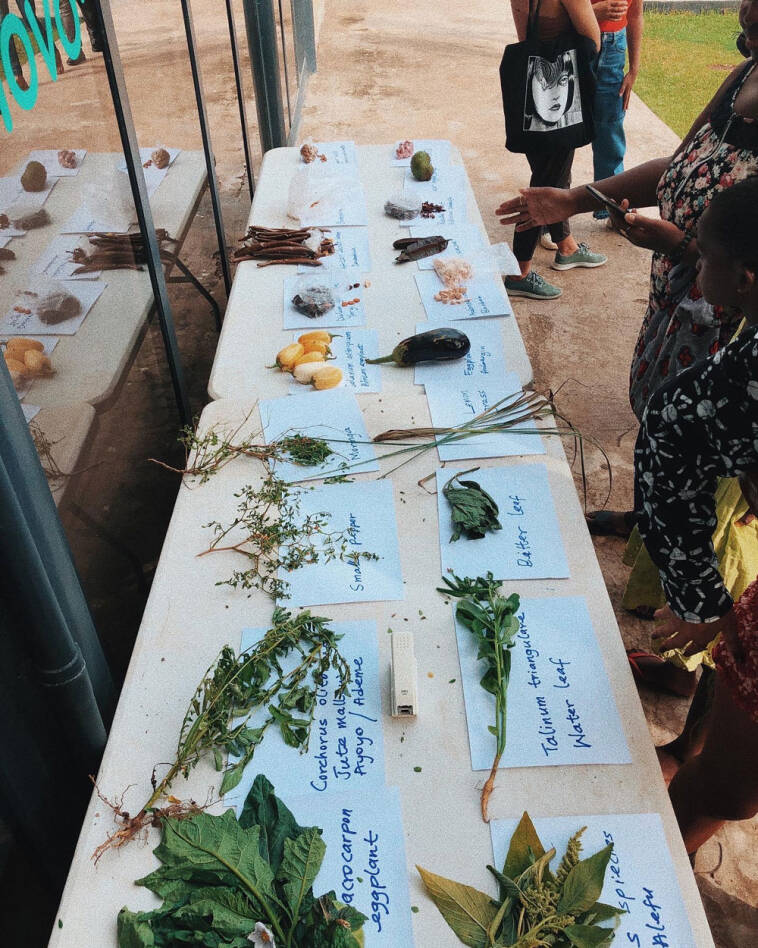
What misconceptions do people in the Global North world have about West Africa?
"The media in the Global North* often conveys that people in Africa are starving. But that’s not the case at all; there is food in abundance here. Because of this misinformation, nonprofit organizations come to Ghana, supposedly to help the population. An example is one prominent organization that wants to eliminate hunger and improve living standards of farmers in developing countries. For years, this organization has invested heavily in the production of 'safe mono products' in Ghana, like corn and soy which has dramatic consequences. There has been a total disregard for what works in this culture. Before they got to work, many farmers here worked with multiple business models and produced different types of crops to diversify their chances. But because of the organization’s highly subsidized cropping program, they started to focus on monoculture and thus on producing only one crop. Their multi-entrepreneurship approach has been totally eroded, resulting in much higher risks. So if a crop fails they lose their entire annual turnover."
"Next thing, new organizations from the Global North come to Ghana and claim that their diet is unhealthy and too one-sided, while in fact the Ghanaian diet is originally very healthy and varied; it only changed when organizations for example from Europe or the US started interfering. In the rural areas they stripped the diversity in production and in cities there was a glorification of the standard American diet, which contains high amounts of processed and pre-packaged food. Influence of the Global North has caused the diet to be much more unhealthy. This is not only true for West Africa by the way, it happens in many other African regions as well. People want to be prosperous and resemble Europe, North America or Australia, and in their eyes that includes fast food. It’s such a shame, because African cuisine has so many beautiful traditions and so many healthy, local products, and instead of choosing their own local cuisine, people prefer unhealthy, greasy food."
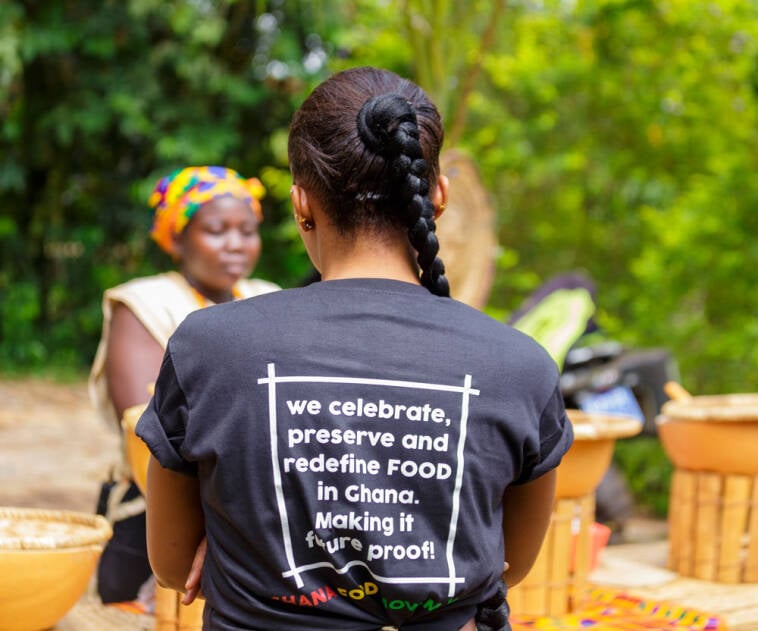
Ghana Food Movement
Ghana Food Movement supports initiatives that work toward a healthy food system in Ghana. The network currently consists of approximately 100 members, called movers; they include farmers, scientists, chefs, journalists, policy makers, entrepreneurs, and producers. Wouters and her team help curate food programs that eventually create jobs for young adults in hospitality and other areas of the food system. The group also contributes to the rediscovery of traditional dishes from Ghanaian cuisine.
In 2012, Lotte Wouters founded The Food Line-up in the Netherlands, a party catering company that works with local entrepreneurs who book and present food offerings at festivals and events. From the start, The Food Line-up doubled in turnover each year, and Wouters was named one of the most promising entrepreneurs in the Dutch catering industry. She was planning to expand further in the Netherlands, until her husband was offered a job in Ghana in 2018. Together with their two children, they transitioned from their home in Europe and traded it for the unknown. Wouters had never lived in West Africa before, but was immediately touched by the incredible variety of dishes, food producers, and their stories. In Europe, organizations that connect food professionals with each other are the norm, but in Ghana there was no such thing. With contagious enthusiasm for entrepreneurship and a knowledge of food and drink, she launched the Ghana Food Movement, a network for and by Ghanaian food professionals.
Maaike de Reuver Ghana Food Movement Xiao Er Kong
The Ghana Food Movement is an organization which aims to heighten awareness of Ghanaian cuisine around the world. Because although the food culture in this West African country is both beautiful and rich, many misconceptions continue to exist. We spoke with founder Lotte Wouters about the how, what, and why.
The food culture in this West African country is both beautiful and rich, and misunderstood
Ghana Food Movement puts Ghanaian food culture on the map
8 min
